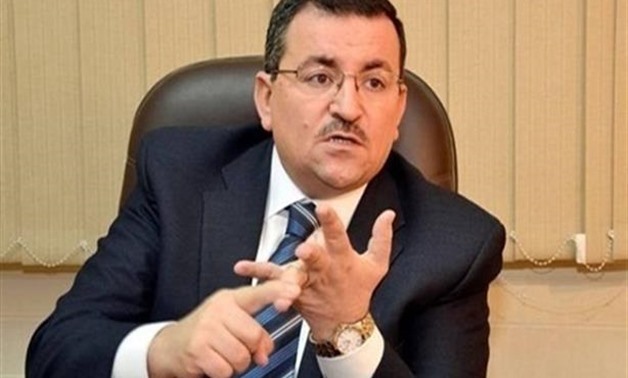
FILE: Osama Heikal, Chairman of the Committee on Information, Culture and Antiquities in the House of Representatives.
CAIRO – 10 June 2018: The new bill regulating media and press provides journalists with legal protection, Osama Heikal, president of the Parliamentarian Committee of Culture and Information said on Saturday.
The law stipulates that whoever attacks a journalist physically while on duty shall be punished by a jail term and a fine of no less than LE 10,000 and no more than LE 20,000, Heikal added in press remarks on Saturday.
Osama’s remarks came one day before the parliamentarian session due to take place on Sunday to discuss the new media and press law. Makram Mohamed Ahmed, chairman of the Supreme Council for Media Regulation (SCMR), is set to take part in the session.
Heikal also stressed that the law ensures the activation of the role of the three independent media bodies; the National Authority for Media, National Authority for Press and the SCMR, as the law issued earlier in 2016 was found to be unclear regarding the responsibilities of each.
“Under the new law, house searches of journalists’ homes and press offices are banned unless they are conducted with a prosecution-ordered warrant,” Heikal further stated, adding that the law bans all forms of censorship, confiscation and closure of newspapers and that journalists must not be questioned for their opinion and must not be forced to disclose the sources of their information.
Media agencies and organizations will have to provide labor contracts to journalists working for them and to set minimum salaries for them alongside other employees, he added.
Heikal also added that the bill obligates all government and public bodies to establish a department, office or a website to provide journalists with the news, statistics and dates they need, ensuring the availability of information without any restrictions and asserting that printed and online journalists are treated on equal footing.
He also insisted on the right of journalists to seek and receive any kind of information they ask for except for information that is confidential or can pose a threat to the national security.
Earlier, Hatem Zakaria, secretary general of the press syndicate, disclosed that the syndicate and Supreme Council for Media regulation (SCMR) delivered their comments on the bill to the Parliament, asserting that the legislators ensure their commitment to the Egyptian constitution, which enshrines the freedom of thought, opinion and expression.
In January 2017, President Abdel Fatah al-Sisi issued a law establishing a syndicate for audio-visual media personnel, following the Parliament’s approval. The Media Syndicate is responsible for regulating audio-visual media practices, as well as defending its members.
The Supreme Council for Media Regulations was established on December 24, 2016 after President Sisi issued Law No. 92 of 2016 on the Institutional Organization of the Press and Media as an independent body with a corporate personality.
The role of the council is to regulate and supervise media outlets in all forms: printed, broadcast and electronic; it establishes the framework and standards necessary to ensure that media outlets abide by the rules and ethics of the profession.
In May 2017, Egyptian authorities decided to ban 21 news websites, including Masr Al-Arabiya and Qatari-based Al-Jazeera, for allegedly supporting terrorism and publishing fake news.


Comments
Leave a Comment